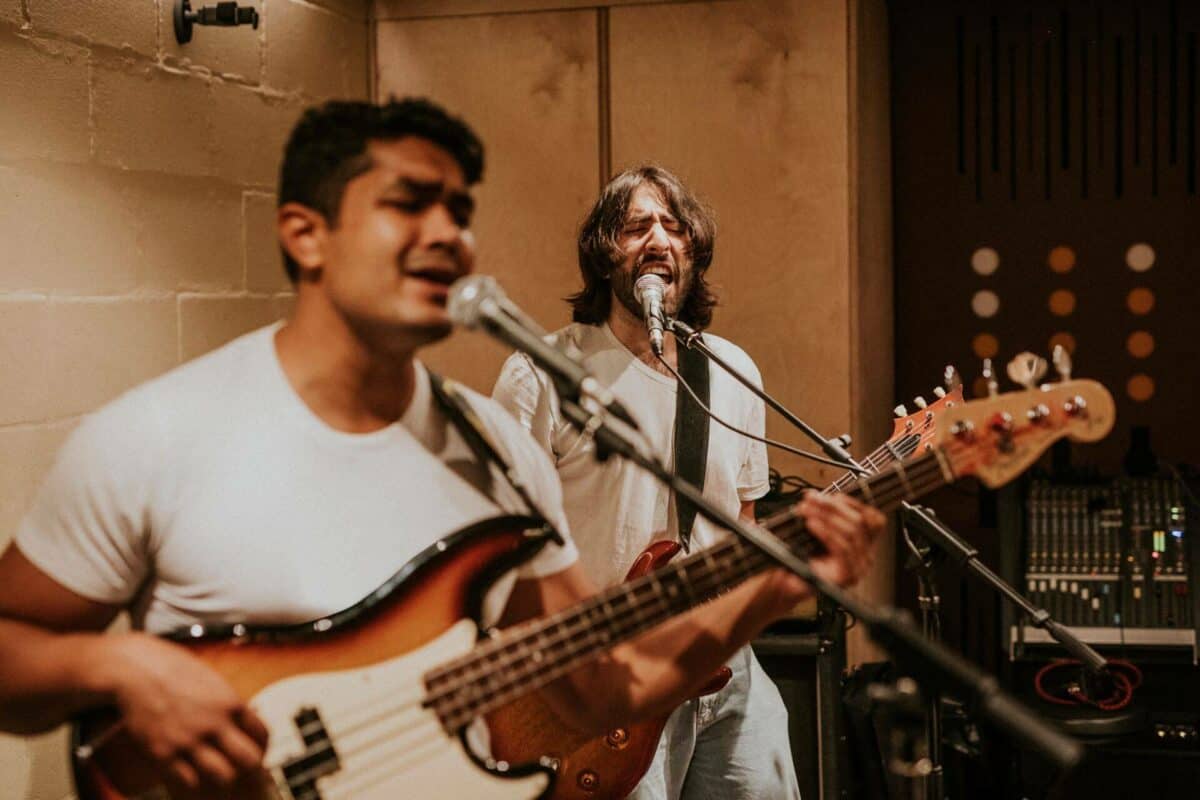Do you enjoy going to concerts, sporting events, or a shooting range? When handled carefully, each of these recreational activities can be a safe experience for your hearing, but you will need to take some intentional precautions. These loud events can pose a risk to your hearing, even when you don’t realize there is a danger. Hearing damage occurs through a combination of volume and duration, so relatively quieter sounds can still harm your hearing if you are exposed for a longer time. In addition to these loud events, headphones and earbuds pose a great risk to your hearing, as well. When you wear these devices, others will not be aware just how loud the sound is, and it can be difficult to test your noise exposure, as well. Let’s take a closer look at these risks posed by recreational noise, as well as what you can do to prevent noise-induced hearing loss.
Dangers from Amplified Sound
When you are at a concert or dance club, you might realize that the amplified sound is very loud, prompting you to wear earplugs to protect your hearing. However, amplified sound can be found in more and more venues, restaurants, bars, and private events. The affordability and availability of powerful speakers makes it possible to encounter dangerous sound at a house party or backyard barbecue, as well. You can use an app on your smartphone to measure the decibel level of amplified sound and to see if you are at risk of noise-induced hearing loss from these events.
Dangers from Other Loud Events
Loud music is not the only risk of noise at events. Sporting events can reach such dangerously loud volumes that they need to stop the game in some instances. If you attend an event like this, it is wise to wear hearing protection, particularly if the game becomes so exciting and close that the crowd goes out of control. Those who play these sports and work in stadia are at a high risk of hearing loss due to the constant workplace exposure to the roar of the crowd. Believe it or not, a restaurant or bar on a busy night can produce a dangerously loud din of voices, as well. When the acoustic architecture of a room combines with background noise and the natural process of trying to speak over others, the level can become risky. Shooting practice and hunting are other loud events that require hearing protection. Although you might be used to wearing noise-canceling earmuffs at the shooting range, you should do so while hunting or taking part in outdoor shooting practice, as well.
Dangers from Headphones and Earbuds
Although these tiny devices might fit in your pocket, they can be incredibly dangerous when it comes to your hearing health. If you wear them in the presence of loud background noise, such as on a mode of transportation, you might turn them up to an even louder level. Not only do they produce very loud sounds sufficient to quickly damage your hearing, but they are also risky when worn for a long time. If you wear headphones while binge watching your favorite television show or to listen to hours of an audio book or podcast, you might incur hearing damage progressively through that time of use, even at a lower level. A good rule of thumb is to keep these devices at 75 percent of the maximum volume, and an even lower level is wise for those extended periods of listening.
Getting Treatment
If you have already incurred noise-induced hearing loss from a professional or recreational source, the good news is that treatment is available. Although this form of hearing loss can’t be cured in the context of your body, hearing assistance is available to fill in some of the gaps in sound and to facilitate communication. If you are concerned that you have already incurred noise-induced hearing loss, then the first step is to get a hearing test. This exam will let us know how much hearing ability you have lost and what you will need in terms of treatment. Our hearing health professionals are here to assist you on your path toward treatment.


